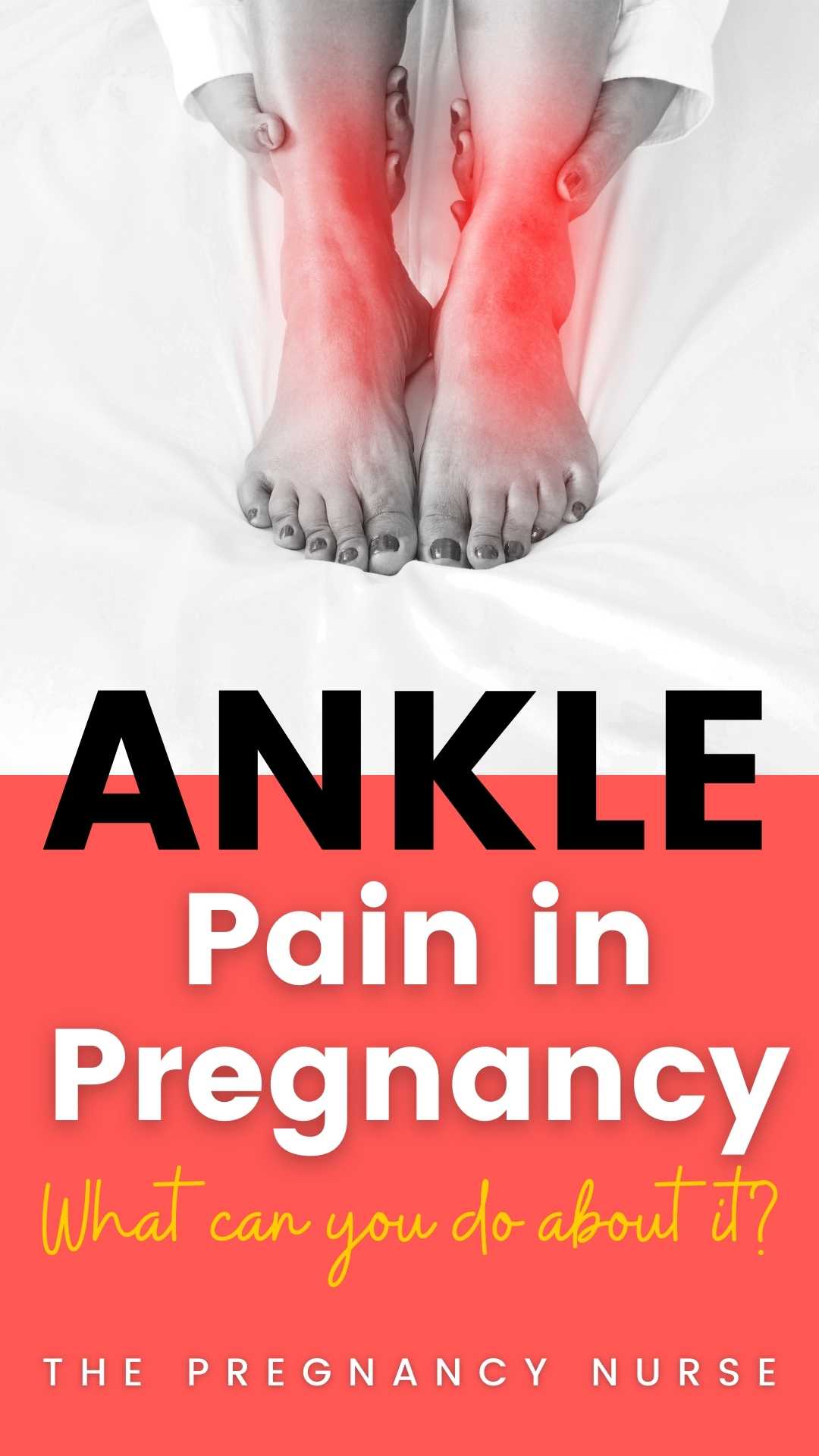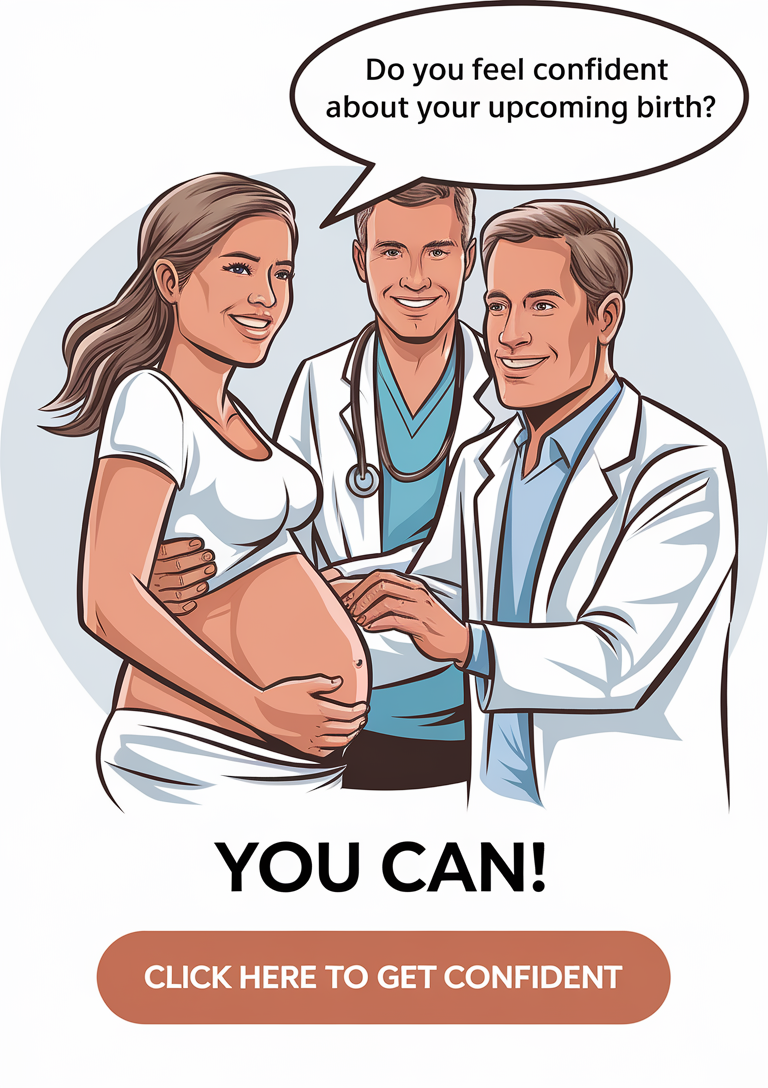If you’re pregnant, you may be experiencing ankle pain. Don’t worry, you’re not alone! In this post, we’ll discuss the causes of ankle pain during pregnancy and provide some tips on how to manage it. Keep reading for more information.
But first, how do I know all of this? Hi — I’m Hilary — The Pregnancy Nurse 👩⚕️. I have been a nurse since 1997 and I have 20 years of OB nursing experience, I am also the curly head behind Pulling Curls and The Online Prenatal Class for Couples. 🩺 I have helped tons of pregnant patients navigate the weird aches and pains of pregnancy, and also learn how to manage them. So I think I can help you too.
Of course, if you have ANY questions about you or your health, please talk with your provider. If your ankle is very painful, red, hot or swollen (and your other ankle isn’t) please contact a provider soon as that could be a sign of something worse. This article is not medical advice.
What are the most common causes of ankle pain during pregnancy?
There are a few different reasons why you may experience ankle pain during pregnancy.
One of the most common causes is due to the added weight and pressure on your ankles from your growing baby. As your baby grows, they put more pressure on the ligaments and tendons in your feet, which can cause pain.
Another common cause of ankle pain during pregnancy is due to the natural swelling that occurs. This is caused by the increased blood volume and fluid retention that happens during pregnancy.
Personally, I had ankle pain due to plantar fasciitis which was exacerbated by my pelvis being unstable. Kind of a mess, but not uncommon for nurses. In general this pain is in your heels and can run up your ankle.
However, the most often reason I see for ankle pain is women continuing to wear shoes that don’t support them well as they have increased weight and a changing center of balance. You just may not be able to wear the high heels that you used to. But let’s talk more about all of this.
How can you relieve ankle pain during pregnancy?
There are a few different things you can do to help relieve ankle pain during pregnancy.
First, make sure you’re wearing comfortable shoes that offer support. Avoid high heels and instead opt for flats or sneakers. You may also want to invest in a custom orthotic device, which can help support the arch of your foot and alleviate pain.
Additionally, try to prop your feet up when you can and avoid standing for long periods of time. Finally, make sure you’re staying hydrated and taking breaks often to help reduce swelling.
Why not prop your feet up and get prepared for birth with this. Save 10% with coupon code PREGNURSE.
These will really only help an “aching” pain in your ankles. If the pain is more sharp, or burning there could be more wrong with it.
When should you seek medical help for ankle pain during pregnancy?
If your ankle pain goes beyond “achy” (especially if that is alleviated by propping your feet up on something) I’d see your provider.
Things to watch for:
- Redness (especially if there is a red line extending up your leg)
- Tenderness to touch a specific area
- Swelling in one ankle (and the other is not)
- Pain when you twist your foot a specific way
Additionally, if you notice any swelling in your ankles or feet that is accompanied by pain, shortness of breath, or chest pain, it’s important to call your healthcare provider right away as this could be a sign of a more serious condition (like a blood clot).
What are the long-term effects of ankle pain during pregnancy?
In most cases, ankle pain during pregnancy is not a long-term condition and will resolve after delivery. However, in some cases, ankle pain can persist even after the baby is born. If this is the case, it’s important to seek medical help to determine the cause of the pain and find ways to manage it.
What can be done to prevent ankle pain during pregnancy?
There are a few things you can do to help prevent ankle pain during pregnancy.
Consider your Shoes
First off, pregnant women can actually have their foot size grow during pregnancy. So you’ll want to consider if you even have the right size of shoes. And then the type of support that they are offering.
I can’t stress enough that high heels during pregnancy can be a dangerous choice. Just due to your changing body. From day to day you may not know how your belly is changing how you move and then it’s easier to have an ankle sprain in those types of shoes.
Compression Socks
Ankle swelling is a normal symptom of pregnancy (when combined with other things it can be a sign of preeclampsia, but is not considered a sign on it’s own). Compression socks can be a helpful addition to your wardrobe for this. There are varying degrees of compression, and lots of cute patterns. They can really help your legs feel better overall.
Too Much Standing
If you have a job that requires standing all day (waiving to all my nurse friends out there), try to sit down with your feet up as often as possible. You may want to discuss with your manager, adjusting your duties, if possible, for those last few months of pregnancy.
The further you get into your pregnancy, your body just has a harder time pumping all that extra blood (to feed your baby & placenta) up to your body. So, we can help it when we put our feet up, even just for a few minutes.
Stretching
Not only can stretching be a lifesaver for plantar fasciitis, it can also help your body be more efficient in returning that water up from your lower limbs. Try some prenatal yoga, or ask your provider if they have any pregnancy stretches they recommend.
Although it doesn’t see intuitive — drinking more water can help as well as it helps flush your system out of anything you don’t need in it. Dehydration in pregnancy can make the swelling worse.
I know it can feel like you have very much turned into an old woman during your pregnancy what with your orthotics and compression socks — but these are temporary things that you use to help you feel more comfortable as you grow a human inside of you. You can go back to the heels (if you want to) after baby, and compression socks will go back into the closet (although still great on a long flight — but that’s a post for another day).
If you love this type of information about pregnancy, be sure to take a preanatal class. If you don’t feel confident about the labor room, or have been avoiding it in your mind, grab a class that fits your budget, and can be done in just a few hours. Remember to save 10% with coupon code PREGNURSE.
Want to do a vibe check before diving into the whole thing with me? — check out my free labor pro tips. It’s your first step toward getting in the driver’s seat of your birth.






 Pregnancy Lollipops for Nausea: How do they work?
Pregnancy Lollipops for Nausea: How do they work?
